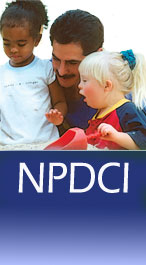Resources to Support Tiered Models of Instruction / Intervention
Tiered models of instruction offer a framework that can be used in early childhood to help practitioners connect children’s formative assessment results with specific teaching and intervention strategies
Why Do It? (the evidence base)
- Gersten, R., Beckman, S., Clarke, B., Foegen, A., Marsh, L., Star, J. R., & Witzel, B. (2009). Assisting students struggling with mathematics: Response to intervention (RTI) for elementary and middle schools (NCEE 2009-4060). Washington, DC: U.S. Department of Education, Institute of Education Sciences, National Center for Education Evaluation and Regional Assistance. http://ies.ed.gov/ncee/wwc/practiceguide.aspx?sid=2
- Gersten, R., Compton, D., Connor, C. M., Dimino, J., Santoro, L., Linan-Thompson, S., & Tilly, W. D. (2008). Assisting students struggling with reading: Response to intervention and multi-tier intervention for reading in the primary grades. A practice guide. (NCEE 2009-4045). Washington, DC: U.S. Department of Education, Institute of Education Sciences, National Center for Education Evaluation and Regional Assistance. http://ies.ed.gov/ncee/wwc/PracticeGuide.aspx?sid=3
Read About It (books, chapters, and articles)
- Buysse, V., & Peisner-Feinberg, E. (2010). Recognition & Response: RTI for pre-K. Young Exceptional Children, 13(4), 2–13.
- Greenwood, C.R, Bradfield, T, Kaminski, R, Linas, M. W., Carta, J. J., & Nylander, D. (2011). The response to (RTI) approach in early childhood. Focus on Exceptional Children, 43(9), 1-22.
http://www.crtiec.org/aboutcrtiec/documents/FOEC-V43-9-May-v5.pdf
- National Professional Development Center on Inclusion. (2012). Response to intervention (RTI) in early childhood: Building consensus on the defining features. Chapel Hill: The University of North Carolina, FPG Child Development Institute, Author. http://npdci.fpg.unc.edu/resources/response-intervention-rti-early-childhood-building-consensus-defining-features
- National Center for Learning Disabilities. Roadmap to Pre-K RTI: Applying response to intervention in preschool settings. http://www.sst4.org/_upload/Early%20Childhood%20resources/RoadmaptoPrekRTI.pdf
See for Yourself (videos and demonstrations)
- CONNECT Module 7: Tiered Approaches to Supporting Social –Emotional Development
http://community.fpg.unc.edu/connect-modules/learners/module-7
Find it Online (websites with additional resources)
- The Center for Response to Intervention in Early Childhood (CRTIEC) http://www.crtiec.org/
- CONNECT Module 7: Tiered Approaches to Supporting Social –Emotional Development http://community.fpg.unc.edu/connect-modules/learners/module-7
- National Center on RTI http://www.rti4success.org
- Resources on Response to Intervention in Early Childhood http://www.nectac.org/topics/RTI/RTI.asp
- Response to Intervention in Early Childhood http://npdci.fpg.unc.edu/resources/articles/RTI-EC
- RTI Action Network http://www.rtinetwork.org/

